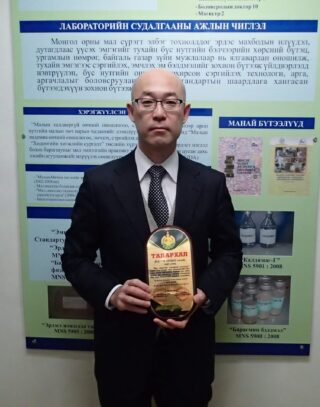
Greetings
Noboru Inoue
Director General, National Research Center for Protozoan Diseases
The National Research Center for Protozoan Diseases (NRCPD) of Obihiro University of Agriculture and Veterinary Medicine was established as an inter-university joint-use facility in 1990, certified as a national joint-use facility in 2000, and then as a joint-use facility/research center in 2009 by the Ministry of Education, Culture, Sports, Science and Technology. In addition, in terms of collaborative activities with related international organizations, our two professors were appointed as Reference Laboratory (RL) experts by the World Organization for Animal Health (WOAH) in 2007, and the following year, NRCPD was recognized as the first WOAH Collaborating Center in the world in the field of protozoan diseases. In 2017, the WOAH RL developed an international standard diagnostic testing system by obtaining ISO/IEC 17025 accreditation for the diagnostic tests provided by the WOAH RL. In collaboration with WOAH and other relevant international organizations, we will continue to contribute to the global surveillance and control of protozoan diseases through academic research and international human resource development. As an example, since 1995, with the support of the Japan International Cooperation Agency (JICA), NRCPD has invited experts from emerging and developing countries who are involved in zoonotic disease control, mainly protozoan diseases, and has conducted group training courses. Nearly 243 trainees have so far completed the course and are now playing a central role in veterinary and livestock administration and infectious disease research and education in their respective countries. Our network of international researchers consisting of these graduates has become an important human resource in the internationalization of education and research activities at the University as well as at NRCPD.
The damage caused to humans and animals by protozoan diseases is immeasurable. Protozoan parasites are tough enemies with a high similarity to host cells and sophisticated survival strategies such as antigenic variations, immune disruption, and complex life cycles. Unfortunately, there are still few prophylactic vaccines or safe treatments available. Therefore, the development of inexpensive diagnostic, prophylactic, and therapeutic methods that can be practically applied in livestock farms around the world is an urgent issue on a global scale. NRCPD will contribute to One Health issue resolution and promotion by actively promoting international collaborative research based on our global network of protozoan disease researchers. On behalf of NRCPD, I truly appreciate your continued support.
